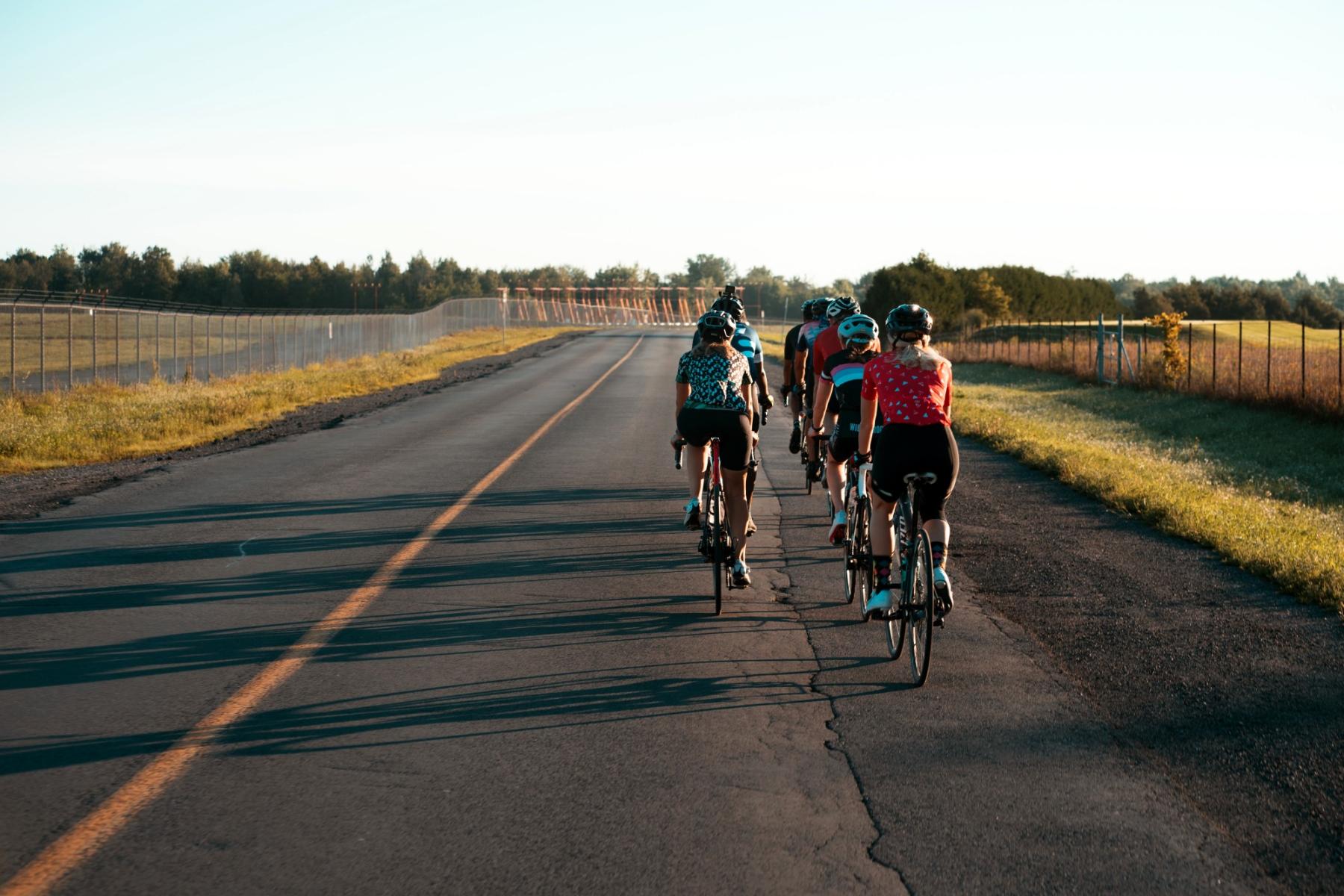
The basics of outdoor activities: etiquette
The rules of etiquette are unspoken, they exist in many different areas: we go to a restaurant — there are some rules, to the theater — others. Exactly the same rules exist in outdoor recreation. Each sport has its own specifics, but there is a small list of general rules that apply to any activity.
There are no punishments for breaking these rules unless you take the environmental field, they are more of an advisory nature, but breaking them leaves an unpleasant other people's impression of you, so following these rules are very desirable.
In this post, the second in a continuation of our new column “The basics of outdoor activities,” we will deal with what is outdoor etiquette in general and give its examples in individual sports.
* * *
So, in the etiquette of outdoor activities, there are several general rules, which, however, quite strongly overlap with each other. But we have tried to highlight the main ones:
- Take care of nature
- Be quiet
- Respect others
- Keep an eye on your kids
- Help
Take care of nature. This is the most important rule of outdoor etiquette. Following this rule is simple enough — imagine that you came to visit someone, to visit nature. Enjoy it, take its gifts, but do not harm it, and do not leave garbage on the visit.
To this rule we can also relate such rules as: don't trample or break plants, especially those belonging to rare species and moreover included in the Red Book; observe animals from a sufficient distance and don’t feed them, and keep your animals on a leash; make a fire only according to the rules and in authorized places — usually these are campsites, and so on. This list is easy to continue. Just imagine something (bad) that you wouldn't do in your home or something (good) that you would like to do for yourself. The same is in nature while doing outdoor activities.
The latter is especially important: on par with garbage, bonfires are one of the main dangers to nature from humans. Fires start very easily and spread over long distances. To avoid a possible fire for sure, use a gas burner.
Be quiet. If you want to listen to music — no problem, just use headphones, because not everyone has the same taste in music as you do. But in general, people go to nature to listen to its sounds: the sound of the sea, forest, and animals, but not the System of a Down. If you want to hold a group meeting in nature after a hike or a busy day at the surf camp, choose a place away from the others or let them know about your plans in advance. However, if you get lost and try to get out of the wilderness, calling loudly for help is allowed and should even be done, as well as in any out-of-the-ordinary situation.
Respect others. Remember — even if you are alone in the wilderness, someone will come into it after you just as you came after someone. Everyone wants to come to a beautiful and clean place without litter.
Despite the fact that outdoor recreation, in general, is a friendly community, you should also not invade another group's site without an invitation, such as joining a campfire or some cyclists. When choosing a camping spot or a beach, if possible, try not to be close to anyone, and make sure there is enough room around: sometimes it is better to search a little longer for a place to stop than to choose the first one to the others. While hiking on the trail and other activities, also respect other people’s personal space.
Keep an eye on your kids. No one should mind that children will play and have fun in nature — it’s their normal behavior. However, make sure they don’t overdo it and limit the small area for them to play in the campground. If kids wake up too early, warn your camping neighbors about it, because someone likes to sleep longer.
Help. It can be anything from setting up a kite for a beginner to helping someone in an emergency situation where there is a risk to health and life.

Pablo Vallejo / Unsplash
* * *
Now a few special rules of outdoor etiquette for some sports, which in turn overlap with the general ones, but they have their own peculiarities:
Kitesurfing
- Use the special area only for kite launching and landing.
- Don’t stand on the shore for a long time, checking the thrust with jumps, or chatting with someone. Pick up the kite and go straight to the water.
- Watch how others are laying the kite lines and don't put yours on top of someone else's.
Surfing
- Find out the rules of a certain spot before you go surfing. On some surf spots, it is a common practice to ride out on a wave together and then find out who takes it. On the other ones, it is better not to ride out on a wave if somebody has already taken it.
- If you come on a spot with a large group, ride one by one, not all at once.
- Take your time: watch the others, as they catch waves, what their mood is... Do not disturb the atmosphere of the surf spot: at each spot, there is a special atmosphere, and it can change during the day. Read more about surf etiquette and surf localism in a separate article.
Skiing and snowboarding
- Control your speed and trajectory. You should not mindlessly fly down the slope, not knowing where you will stop. Ideally, you should be able to stop at any time. Choose a trajectory that will pass without interference from other skiers and snowboarders. Stop carefully without disturbing the other riders, in the center of the slope.
- Do not go on the ski lift without a queue and be polite while waiting your turn on the lift. Do not smoke, drink or use foul language in front of people you do not know. Also, don’t throw trash in the stall: hide it in your pocket and throw it away later.
- Respect newcomers in skiing and ski school groups. Don’t ride close to them, because they are still learning and moving slower, make simple mistakes, and so on.
Yachting
- The captain is in charge of the boat, the calm voyage, and the crew. In case of conflict, he/she acts as a conciliator.
- Keep order on board — on a yacht this is extremely important: tidy deck, properly packed sails, cleaned stateroom, and so on and so forth — everything must be neat. For example, on boats, it is customary to walk barefoot or in shoes with white soles so as not to leave marks on the deck.
- While sailing, the crew and especially guests should not stand on deck unless absolutely necessary. Loose ropes, lines, or untidy fenders can hit a person and cause them to fall overboard.
Fishing
- Be careful when fishing from a boat near the coast. Shore fishermen do not have access to deep water, so try to defer to their line. Also, if someone is fishing with bottom tackle, go around them as far as possible at a slow speed so you don’t spook the prey.
- Don’t try too hard to find out from other fishermen their favorite or even secret spots and tell them about yours only if you want it.
- Fishermen are also quite superstitious people, so all kinds of folk omens and rituals are especially reverent. Respect this. For example: do not count the catch until fishing is over; do not touch someone else’s tackle; do not impose on your neighbor with questions about the nibble and catch (yes, it’s difficult). Every fisherman has his or her own special signs.
Diving
- Listen to experienced divers and follow their advice. Do not interrupt the instructor during the briefing, even if you are experienced and know everything.
- Be calm if you have chosen the spot in the evening, and in the morning due to weather conditions, it no longer meets the safety requirements and you have to reschedule or cancel the dive.
- When diving in a small lake or narrow river does not stir up the sludge — divers after you also want to see all the beauty of the underwater world, and after the dive do not throw things all over the dive boat, put them in the designated place.
Cycling
- Ride calmly and predictably. Don’t make any sudden movements, turns, U-turns, or stops. People around you should understand what you want to do. Show your direction of travel with your hands.
- When riding in a group of even two people, it is best to ride behind each other so as not to interfere with others. Share the path. If you see someone in your path or hear someone behind you trying to pass you, slow down a little and ride quietly apart.
- Greet other cyclists with a voice or gesture. Usually, it’s enough to raise your arm slightly away from the handlebars — there’s no need to wave your arms too much, especially as it’s just not safe.
Read the Windy.app Outdoor Encyclopedia to learn more about these and other sports.
Text: Masha Shapovalova, a web specialist and author. Her favorite sports are kitesurfing and alpine skiing. Ivan Kuznetsov contributes to this article
Cover photo: Julien Rougeron / Unsplash
You will also find useful
35th anniversary of a Blue Flag outdoor award
Tip: Pick the right spot type for your outdoor activity
How to read the latitude and longitude
Latest News
Professional Weather App
Get a detailed online 10 day weather forecast, live worldwide wind map and local weather reports from the most accurate weather models.
Compare spot conditions, ask locals in the app chat, discover meteo lessons, and share your experience in our Windy.app Community.
Be sure with Windy.app.



